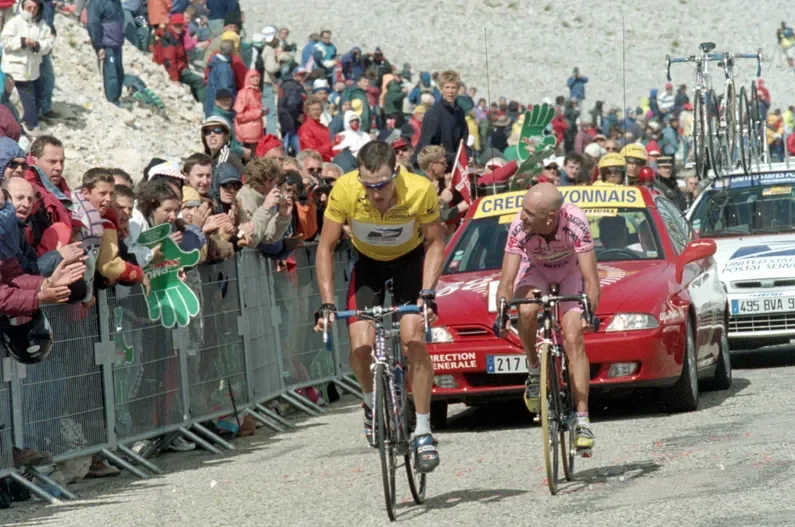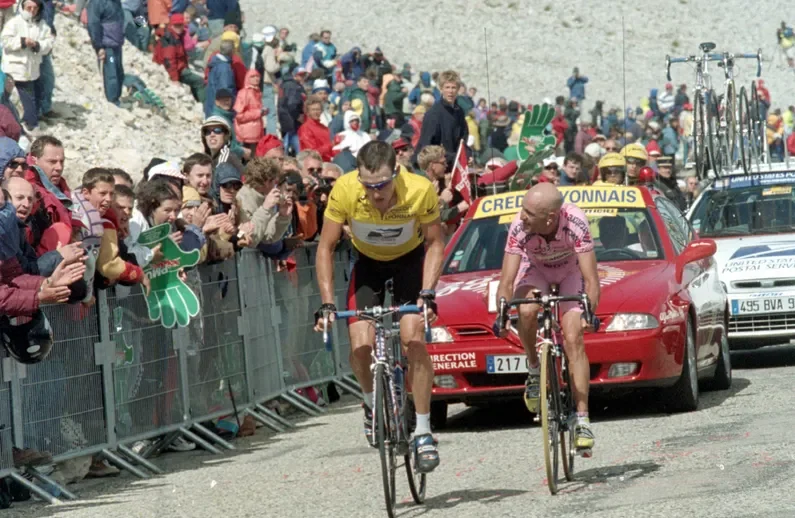
Lance Armstrong’s name will forever be linked to both cycling’s greatest achievements and its most profound scandals. Once revered as a cancer survivor who conquered the Tour de France seven times, Armstrong’s legacy took a dramatic fall when it was revealed that his success was built on a foundation of systematic doping. Since then, he has remained a vocal figure in the sport, particularly through his The Move podcast, but not everyone is eager to hear his perspective. One of his most vocal critics is Portuguese Eurosport commentator Olivier Bonamici, who recently shared strong opinions on Armstrong during an appearance on the podcast Ontem Já Era Tarde.
Armstrong’s Impact on Cycling
Armstrong’s rise to prominence in the late 1990s and early 2000s seemed like the ultimate comeback story. After battling testicular cancer, he returned to cycling and dominated the Tour de France, winning seven consecutive titles from 1999 to 2005. His story inspired millions, positioning him as a symbol of perseverance. However, the glory came crashing down when a 2012 investigation by the United States Anti-Doping Agency (USADA) exposed Armstrong’s extensive doping practices. The revelation not only stripped Armstrong of his titles but also stained the entire sport of cycling with the shadow of corruption.
Since admitting to doping in a 2013 Oprah interview, Armstrong has continued to participate in cycling discussions, especially through his podcast, The Move. This ongoing presence has sparked mixed reactions, particularly from figures like Bonamici, who cannot reconcile Armstrong’s past actions with his current role as a public commentator on the sport.
Bonamici’s Critique
Bonamici expressed his disapproval of Armstrong’s continued influence in cycling, particularly his role as a self-appointed moral voice in the sport. “Maradona took drugs, but he didn’t give moral lessons. He cheated soccer. Who is Lance Armstrong to give moral lessons?” Bonamici remarked, comparing Armstrong to the late football legend Diego Maradona, who faced his own doping scandal but did not attempt to lecture others on ethics.
According to Bonamici, Armstrong “stole cycling” by creating a toxic environment in the sport, especially in Portugal, where the scandal left a lasting negative impression. “He drove a lot of people away from cycling,” Bonamici added, arguing that Armstrong’s actions had far-reaching consequences for the public’s perception of the sport.
A Journalist’s Perspective
Bonamici also pointed out the risks taken by journalists who uncovered Armstrong’s doping. He highlighted David Walsh, the journalist who played a pivotal role in exposing the truth, noting the personal and professional sacrifices Walsh made in the process. “It cost him his professional life,” Bonamici said, emphasizing the courage required to take on such a powerful figure.
Conclusion: A Divisive Legacy
For Bonamici, Armstrong’s role in cycling cannot be forgiven easily. “Anyone can make mistakes,” he said, “but Lance stole cycling.” Bonamici cannot understand how Armstrong continues to comment on the sport, and feels that he should no longer have a platform in the cycling community.
While Armstrong’s influence endures, Bonamici’s words serve as a reminder that not all are ready to forgive the American cyclist for his past actions, which continue to cast a shadow over the sport to this day.

Leave a Reply